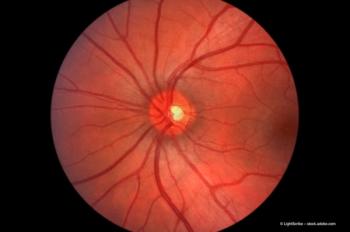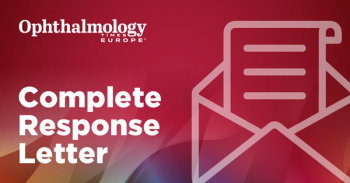
Phase 2 study results of AR-1105 therapy in macular oedema, secondary to retinal vein occlusion
In his presentation at ASRS 2021, Dr Michael Singer divulges the results of the phase 2 study of formulations used to decrease macular oedema in patients with retinal vein occlusion.
During the 39th ASRS Annual Scientific Meeting, Dr Michael Singer gave a presentation entitled "Presenting results of a Phase 2 study of Aerie’s pipeline candidate AR-1105 in macular oedema, secondary to retinal vein occlusion."
Dr Singer is a clinical professor of ophthalmology at the University of Texas Health Science Center and the Director of Clinical Research at Medical Center Ophthalmology.
Video transcript
Dr Michael Singer: Hi, my name is Michael Singer. I'm clinical professor of ophthalmology at the University of Texas Health Science Center in San Antonio, and Director of Clinical Research and Medical Center Ophthalmology Associates. What we discussed today is using a new platform called AR-1105, which is a platform using dexamethasone implant for the treatment of retinal vein occlusion.
In our study, using print technology, we looked at two different formulations of this technology to see how it would react in patients with chronic macular oedema secondary to retinal vein occlusion. Patients were included if they had retinal vein occlusions greater than nine months in duration, and they had macular oedema. And they were randomized to either be on the one formulation or another formulation based on the different release rates.
And as it turns out, that basically both formulations were able to decrease macular oedema in almost all the patients, and about 25% of patients were able to become three-line gainers, regardless of the formulation.
What also was interesting was both formulations were able to dry the retina and keep it dry for most of the study. However, formulation number two seemed to do a better job of keeping the retina dry for at least six months. And as a result, with these positive results, we're very encouraged to develop a phase 3 program using the second formulation or CF-2 going forward.
The American Society of Retina Specialists (ASRS) hosted its 39th Annual Scientific Meeting from the 8th to the 12th of October, 2021, at the JW Marriott San Antonio Hill Country Resort and Spa in San Antonio, Texas.
According to ASRS, its 2021 scientific programme offered attendees innovations in retina science, clinical practice and surgery with 148 papers, 165 posters, 46 papers on demand, and 69 films, as well as a wide range of networking opportunities and the chance to exchange ideas and perspectives with peers.
Related Content:
Newsletter
Get the essential updates shaping the future of pharma manufacturing and compliance—subscribe today to Pharmaceutical Technology and never miss a breakthrough.




























